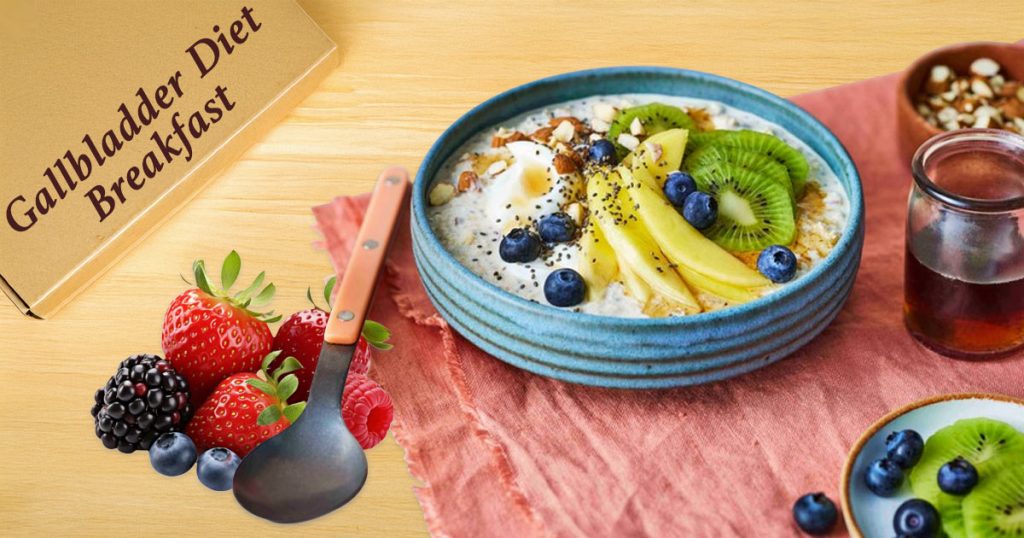Gallbladder problems like gallstones can really affect your daily life, causing pain and making it harder to enjoy meals. Gallstones are hardened clumps of bile, and they’re actually pretty common, affecting about 10-15% of people. The National Institute of Diabetes and Digestive and Kidney Diseases (NIDDK) says about 25 million Americans have gallstones, though many don’t show symptoms. However, for those who do, it can mean intense stomach pain, nausea, vomiting, or bloating.
Gallstones can form for several reasons, such as being overweight, eating a lot of fatty or high cholesterol foods, losing weight too quickly, or even due to genetics. If a gallstone blocks the bile duct, it can trigger a gallbladder attack, or biliary colic, which causes sharp pain that can last for hours. Knowing what causes gallstones can help you make choices that lower your risk and help manage symptoms.
While medications or gallbladder removal surgery may be needed in some cases, lifestyle changes play a big role in managing gallstones. Specially, what you eat can make a huge difference. A healthy diet—starting with a thoughtful and gallstone-friendly breakfast—can help ease discomfort and lower the chance of future attacks.
Why Breakfast Matters for People with Gallstones
Breakfast is often called the most important meal of the day, and if you have gallstones, it’s even more critical. Eating a healthy, balanced breakfast helps jumpstart your digestive system after hours of rest. This prevents bile—a digestive fluid stored in your gallbladder—from sitting idle and turning into painful gallstones. A good breakfast can also ease common symptoms like bloating, pain, and discomfort by keeping your digestion on track without overworking your gallbladder.
Choosing the right foods for breakfast is important because it can make your gallbladder’s job much easier. Low-fat, high-fiber foods are the way to go. Foods packed with bad fat force your gallbladder to release more bile, which can lead to problems. On the other hand, foods full of fiber support digestion, lower cholesterol, and help keep bile balanced.
What Should You Eat for Breakfast With Gallstones?
If you’re dealing with gallstones, aim for foods that are low in fat, high in fiber, and gentle on your digestion. Here are some great options to include at breakfast:
1. Fruits
Apples, bananas, berries, and oranges are excellent choices. They’re filled with fiber, which improves digestion and helps control cholesterol, making your gallbladder’s job easier.
2. Vegetables
Start your day with nutrient-packed veggies like spinach, tomatoes, or bell peppers. They add vitamins and minerals that fight inflammation and support healthy digestion.
3. Whole Grains
Go for oatmeal, whole-grain bread, or quinoa. These are high in fiber, which keeps your digestion smooth and prevents cholesterol buildup in bile.
4. Egg Whites
Egg whites give you protein without the fat found in yolks, making them a safe and satisfying option for gallstone management.
5. Non-Dairy Milk
Almond milk or oat milk are great alternatives to regular milk since they’re lower in fat and easier on the gallbladder.
6. Low-Fat Dairy
If you tolerate dairy, try low-fat yogurt or skim milk. They’re good sources of calcium and protein without piling on the fat.
7. Lean Proteins
Options like turkey slices or tofu offer the protein you need without stressing your gallbladder.
Easy Gallstone-Friendly Breakfast Ideas
Creating a tasty and nutritious breakfast doesn’t have to be complicated. Here are some ideas to get you started:
1. Oatmeal with Berries
Cook oatmeal in almond milk and top it with fresh strawberries or blueberries. The oats are great for digestion, and the berries add antioxidants to reduce inflammation.
2. Egg White Veggie Omelette
Whisk up some egg whites and toss in spinach, tomatoes, and mushrooms. Cook with a light olive oil spray. It’s packed with protein and nutrients while staying low in fat.
3. Whole-Grain Toast with Banana Slices
Spread almond butter thinly on whole-grain toast and add slices of banana. This combo is rich in fiber and provides quick, healthy energy.
4. Smoothie Bowl
Blend bananas, berries, and almond milk to make a creamy base. Add toppings like chia seeds or granola for a little crunch and extra nutrients.
5. Vegetable Quinoa Bowl
Combine quinoa with steamed or sautéed veggies like zucchini and broccoli. It’s a filling, savory breakfast packed with protein and fiber.
6. Low-Fat Yogurt with Fruit
Use plain, low-fat yogurt and top it with apples, raspberries, or kiwi. Sprinkle on a little flaxseed for added fiber and omega-3 benefits.
Each of these breakfast ideas is low in fat and high in fiber, meaning they won’t stress your gallbladder but will keep you nourished and energized. They’re easy to make and full of nutrients to support your digestive health.
Taking Care of Your Gallbladder
Managing gallstones doesn’t have to be complicated. A healthy diet and a few lifestyle changes can help prevent and manage gallstone problems while keeping your gallbladder in good shape. Choosing low-fat, high-fiber, nutrient-packed foods is a great start. When you eat well, especially in the morning with a gallstone-friendly breakfast, you’re helping your gallbladder work smoothly and reducing the risk of issues.
It’s also important to watch out for foods that could make things worse. Avoid fatty, fried, and processed foods because they force your gallbladder to work harder, which can lead to discomfort or attacks. Sugary treats and meals high in cholesterol can also create problems, so it’s better to stick to whole foods, lean proteins, and plant-based options that are easier on your digestion.
Besides eating right, staying active, drinking plenty of water, and keeping a healthy weight all play a big role in supporting your gallbladder. These habits keep your digestion running smoothly, balance bile production, and help prevent gallstones in the long run.
Making small changes, like improving your diet and moving more, can make a big difference. It’s not about being perfect—it’s about making smarter choices most of the time. With these steps, you can prevent gallstones, manage symptoms, and help your gallbladder stay healthy and happy.
